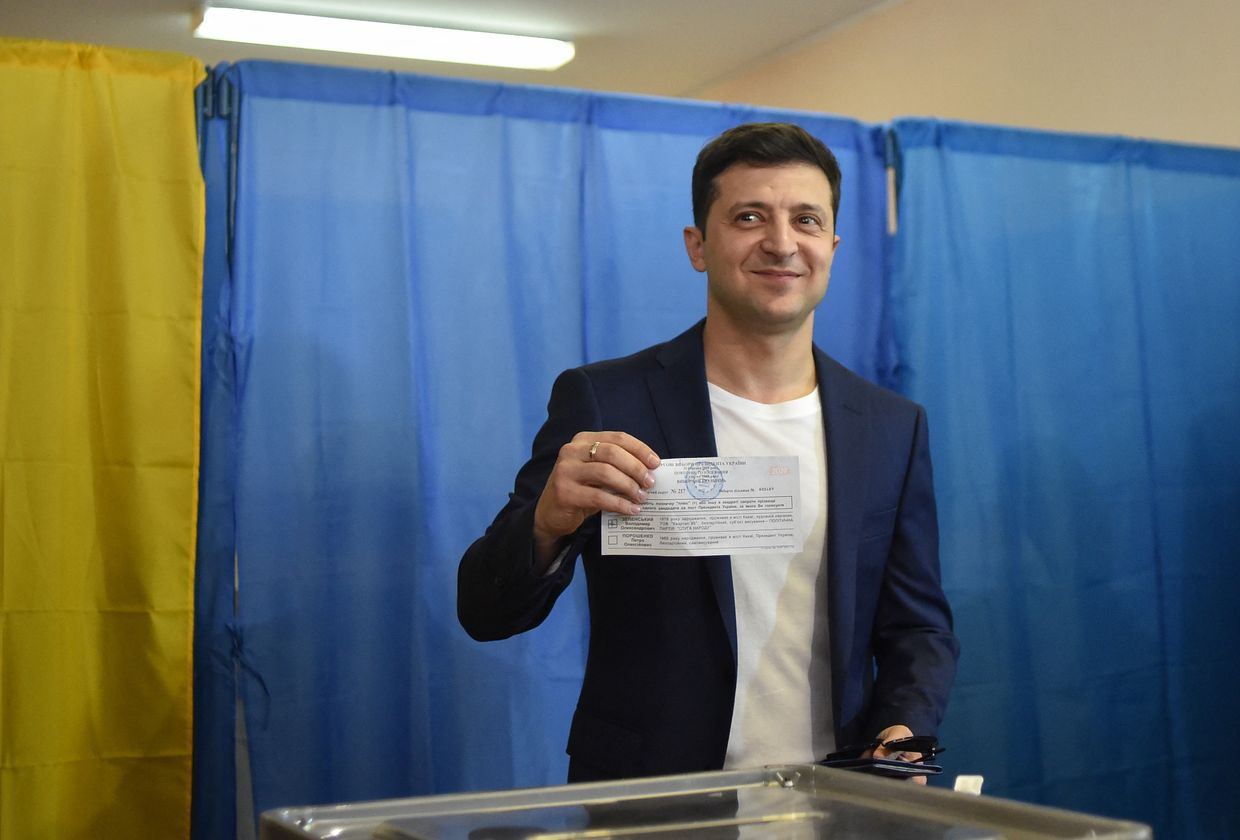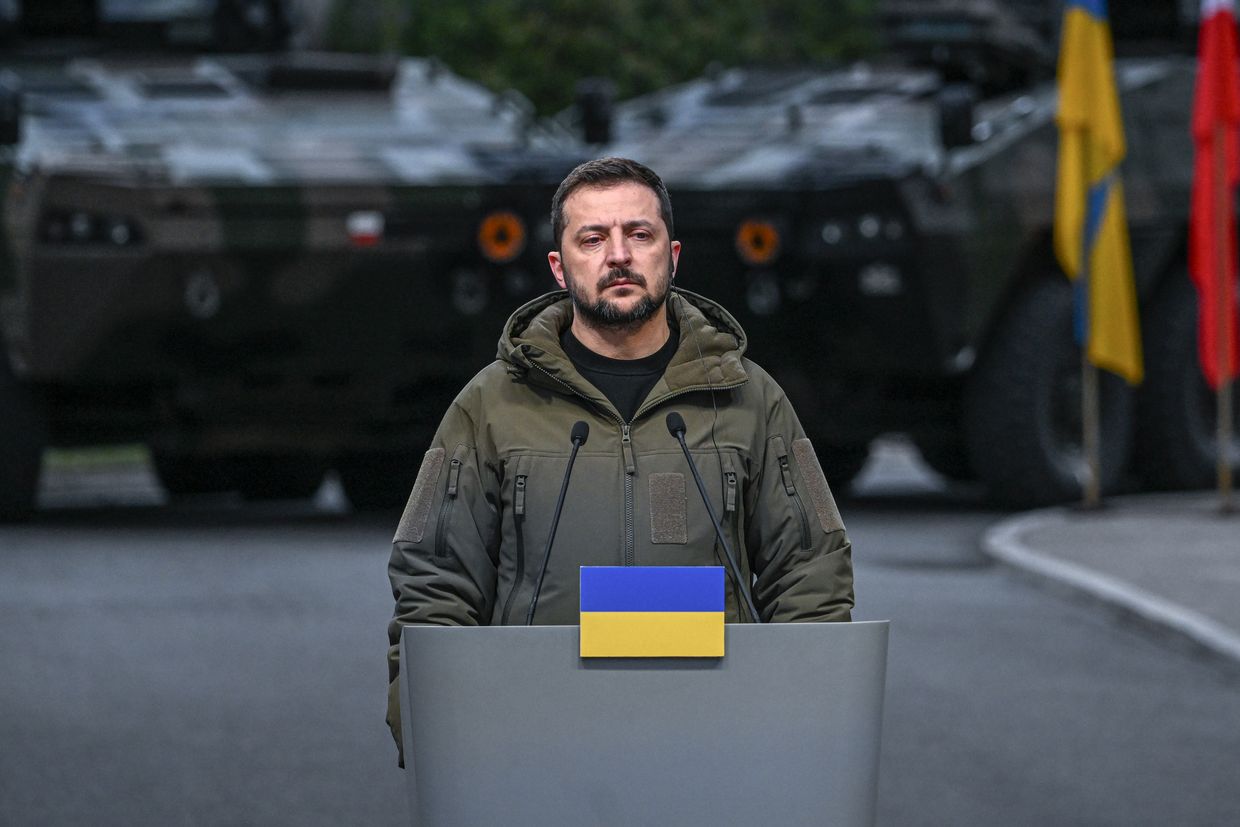Confused about Zelensky’s legitimacy? Here’s what you need to know

President Volodymyr Zelensky arrives to meet with German Chancellor Olaf Scholz at the 61st Munich Security Conference on Feb. 15, 2025 in Munich, Germany. (Sean Gallup/Getty Images)
U.S. President Donald Trump claimed on Feb. 19 that President Volodymyr Zelensky was a "modestly successful comedian" turned "dictator" who "refused to have elections."
This was the latest in a series of false accusations Trump has made about Ukraine while his team is engaging in peace negotiations with Russia, a country that wages a war of aggression against Ukraine.
Trump's words led Ukraine's European allies to reaffirm their support for Zelensky and address that they see him as the legitimate president of Ukraine.
U.K. Prime Minister Keir Starmer emphasized that Zelensky was Ukraine's "democratically elected leader." It is "perfectly reasonable to suspend elections during wartime as the U.K. did during World War II," the readout of Starmer's call with Zelensky on Feb. 19 said.
We've collected our articles and videos to help you understand why Zelensky's legitimacy is being questioned and how that plays into Russia's hands.
Why is Zelensky's legitimacy being questioned?
The Kremlin has long sought to portray Zelensky as "illegitimate" in an attempt to discredit Kyiv. Kremlin spokesperson Dmitry Peskov said on Feb. 18 that Russian President Vladimir Putin, who has ruled Russia for over 20 years, is ready for talks with Zelensky, but "legal aspects related to his legitimacy" must be considered. Ukraine's allies had generally ignored this propaganda narrative until Trump appeared to echo the Kremlin's lines.
Watch this video on our YouTube channel to understand why Russia is using this narrative:

Did Zelensky cancel elections?
No, Zelensky did not cancel elections. The reason why Ukraine has not had elections during Russia's full-scale war is because they cannot be held under martial law. Martial law in Ukraine was declared on Feb 24., 2022, hours after Russia launched its full-scale invasion. Moreover, Ukrainian law requires an election to be safe, equal, and uninterrupted. This is impossible during a full-scale war, with Russia continuing to attack civilians and civic infrastructure.
Read our guide to any potential elections in Ukraine:
Was Zelensky democratically elected?
Zelensky was elected democratically in the 2019 Ukrainian presidential elections, winning 73% of the vote and beating then-incumbent President Petro Poroshenko. “The presidential election was competitive and fundamental freedoms were generally respected,” election observers from the Organization for Security and Cooperation in Europe (OSCE) declared at the time.
"Ukraine is a democracy. Putin's Russia is not," European Commission spokesperson Stefan de Keersmaecker said on Feb. 20.
Watch our video to learn about Zelensky's 2019 election campaign and how he came to power:

When did Zelensky's term expire?
If Ukraine had not been under martial law, Ukraine's next presidential election would have been held on March 31, 2024, and Zelensky’s term would have ended on May 20, 2024. Read this article from May 2024 to understand why Zelensky stayed on as Ukraine's president past that date:
What is Zelensky's approval rating?
According to a survey by the Kyiv International Institute of Sociology (KIIS) published on Feb. 19, around 57% of Ukrainians trust Zelensky as of February, marking an increase of five percentage points since December, when his approval rating polled at 52%. The day before, Trump claimed that Zelensky was down to a 4% approval rating.
Trust in Zelensky skyrocketed after Russia launched its full-scale invasion and he remained in Kyiv to lead the country's fight. His approval rating began to drop in 2024 as the battlefield stalemate gave way to grinding Russian advances.
Understand Zelensky's evolution into a wartime leader with our video on how his stance on Russia has changed:














